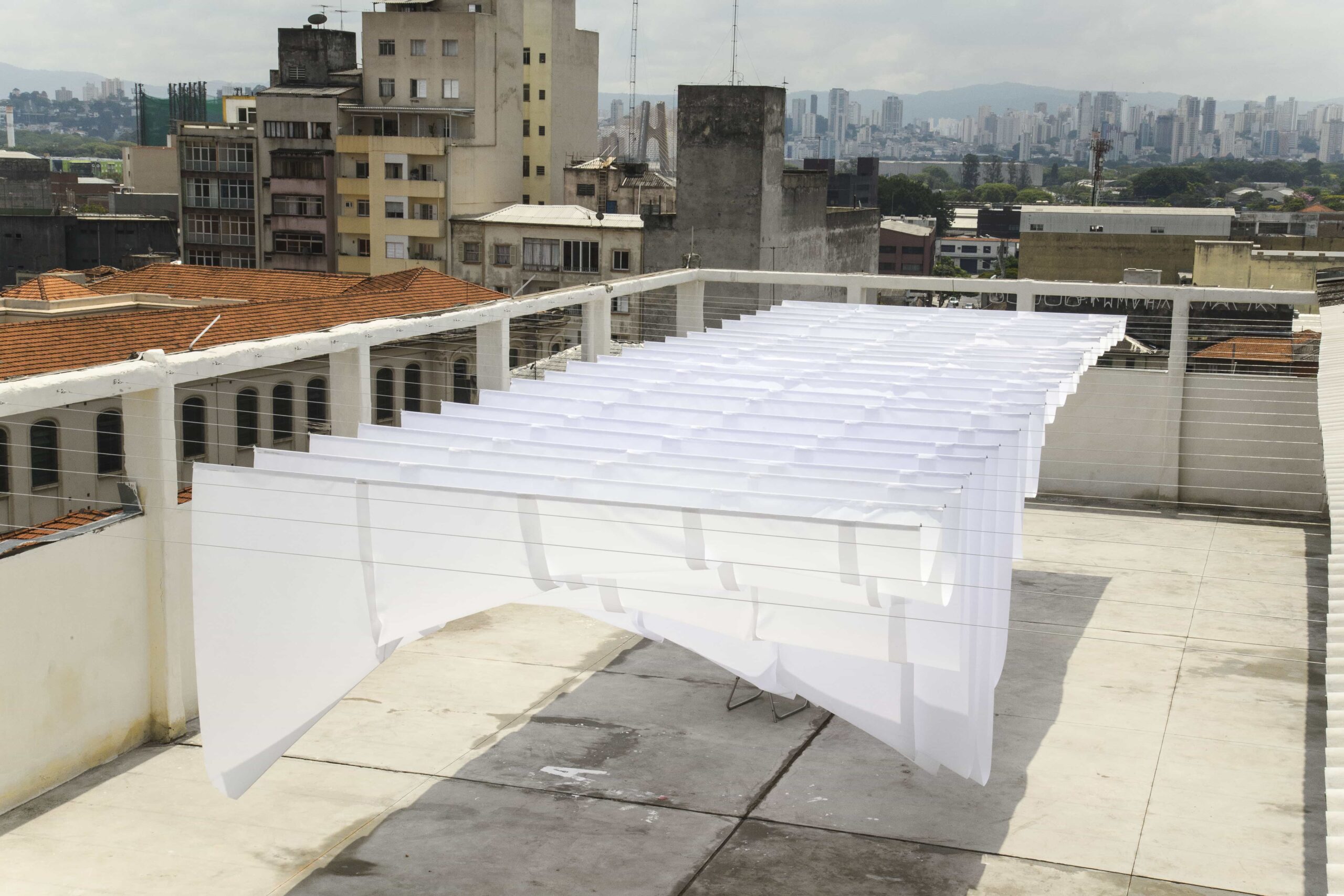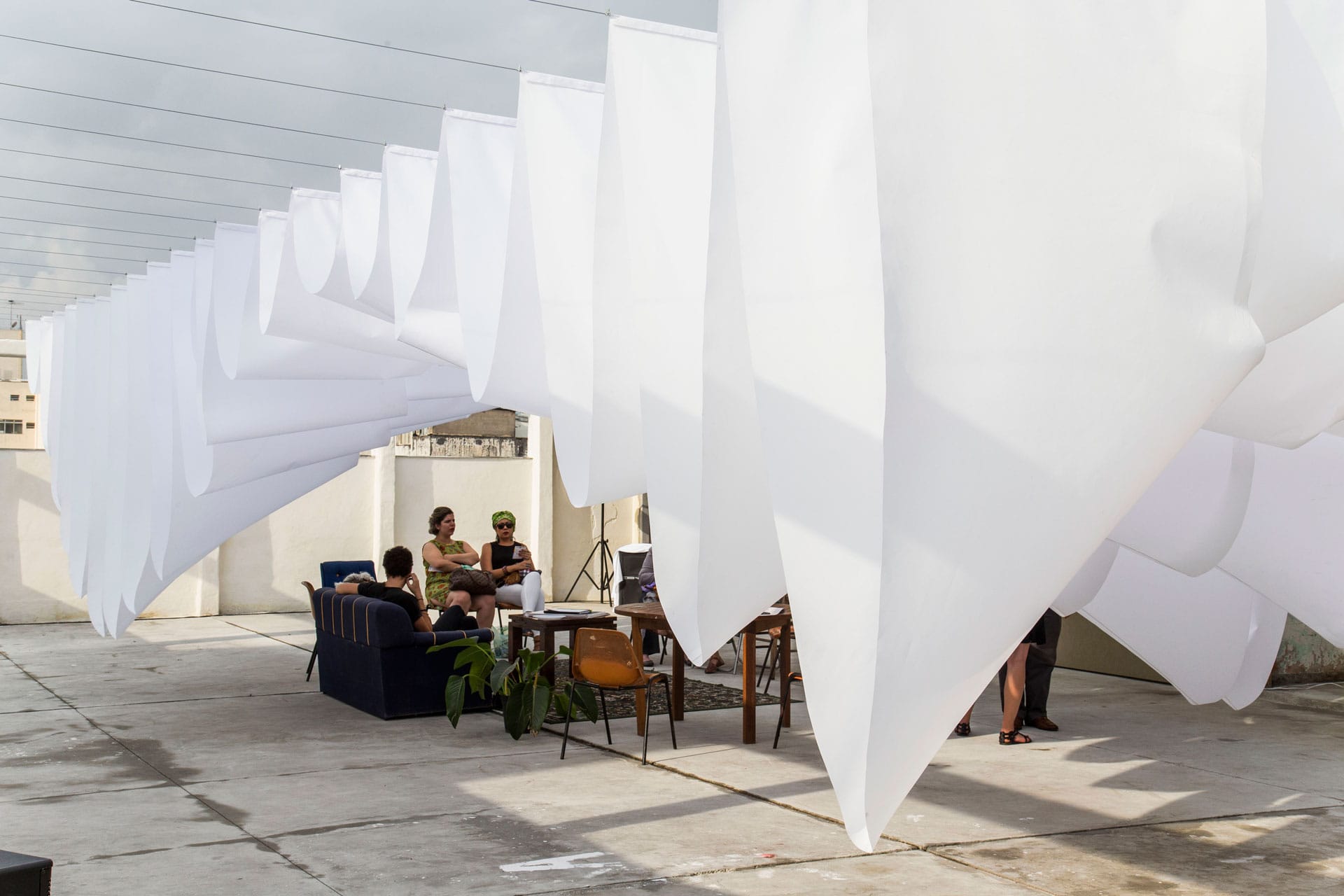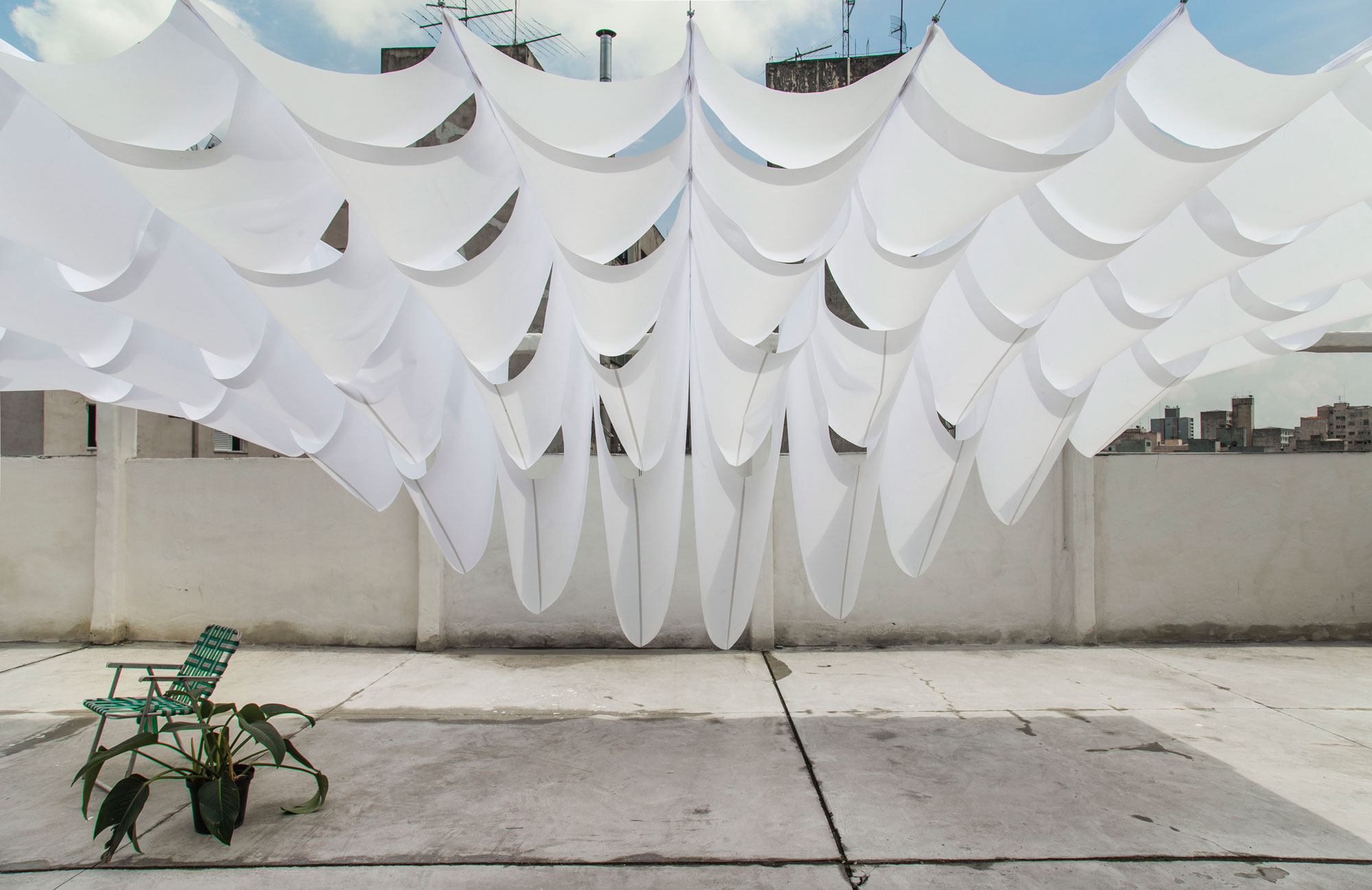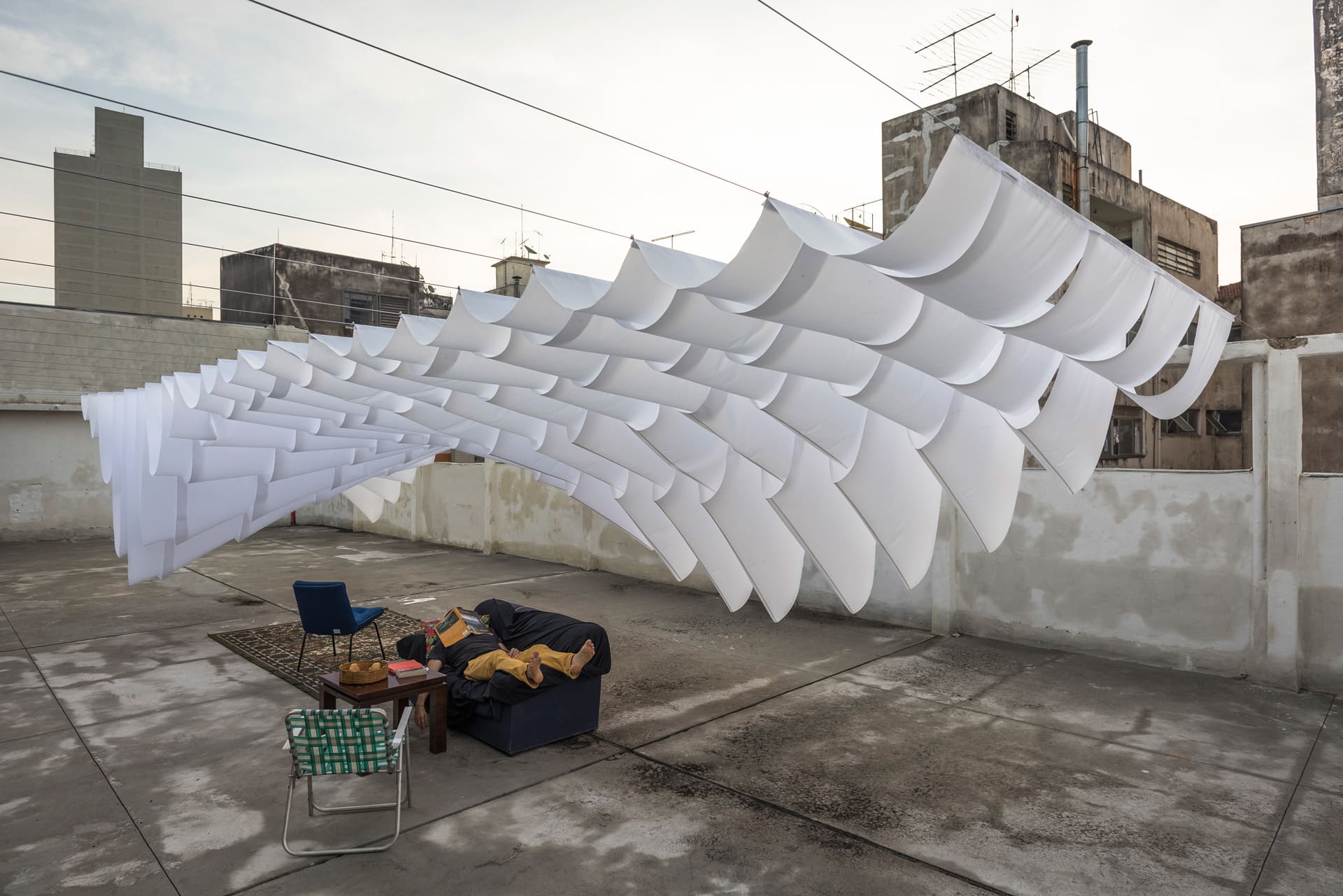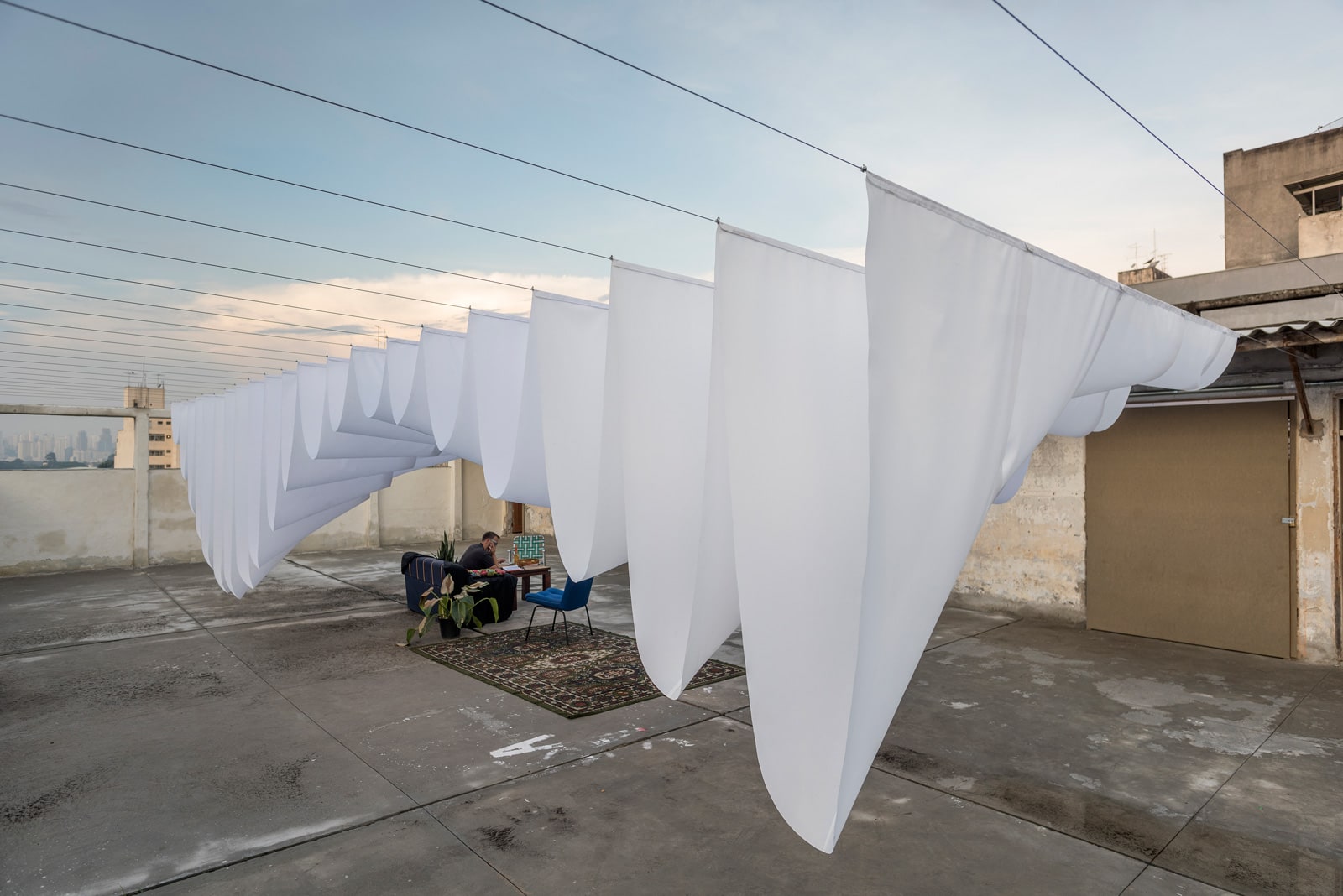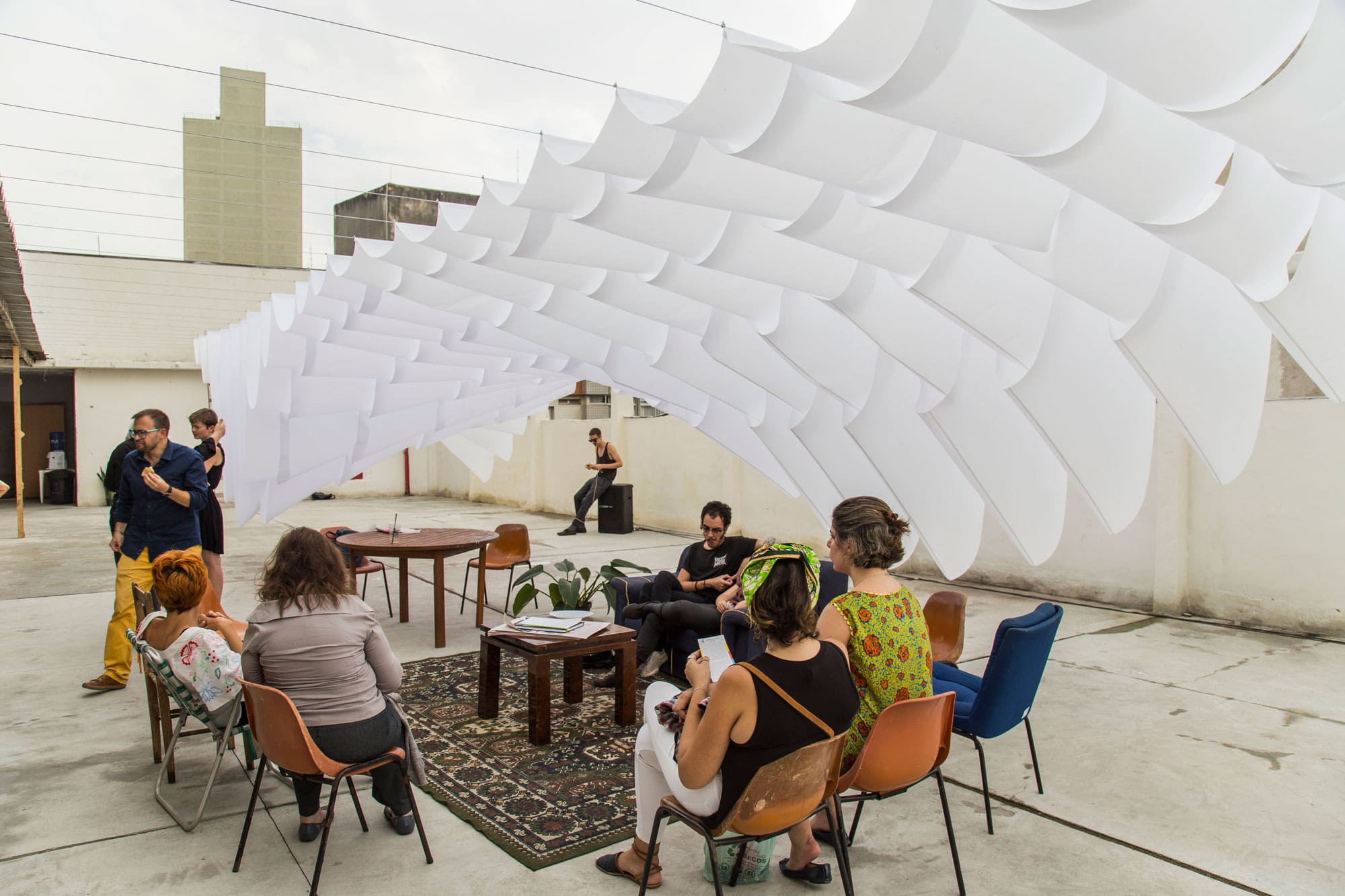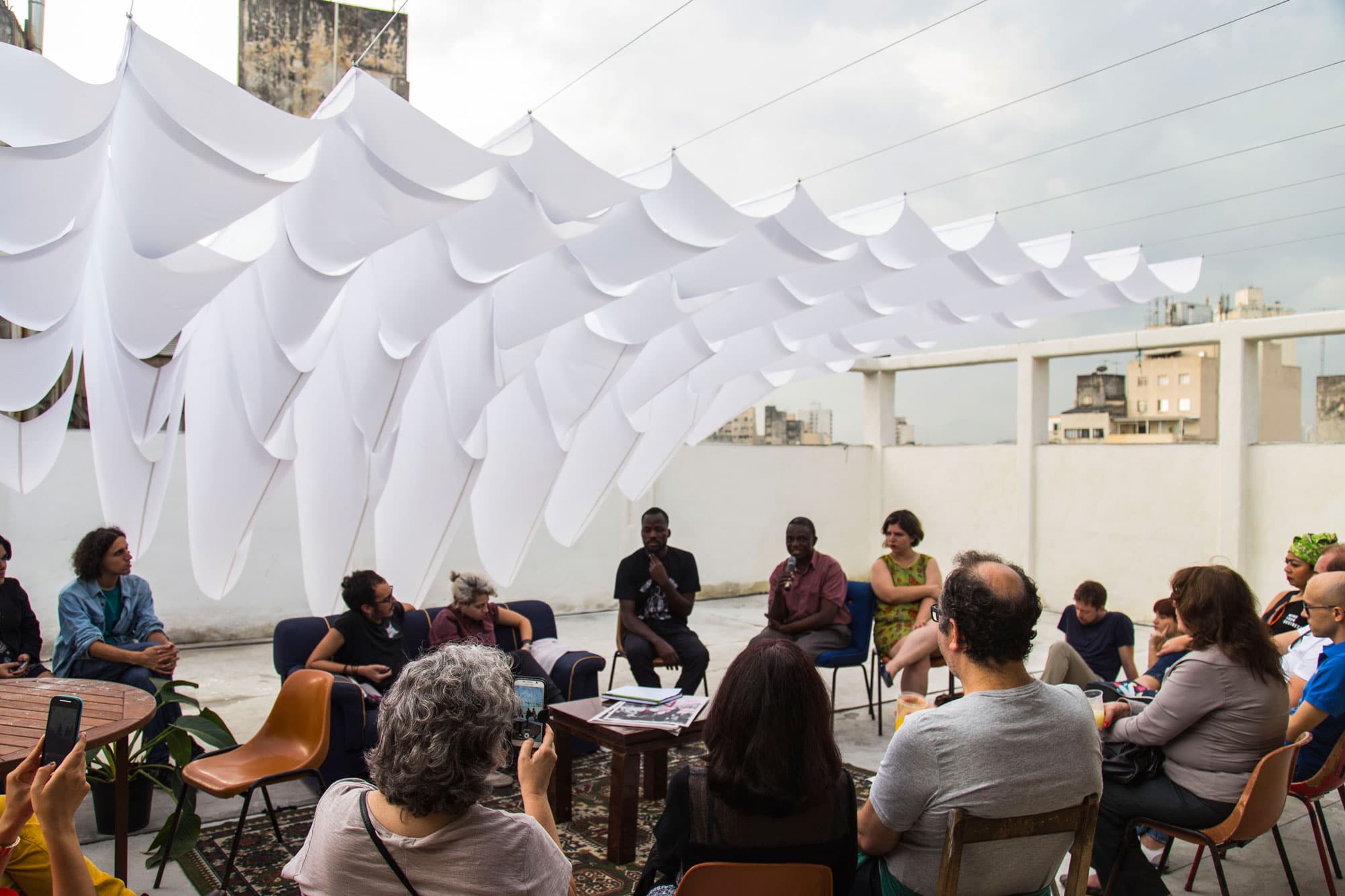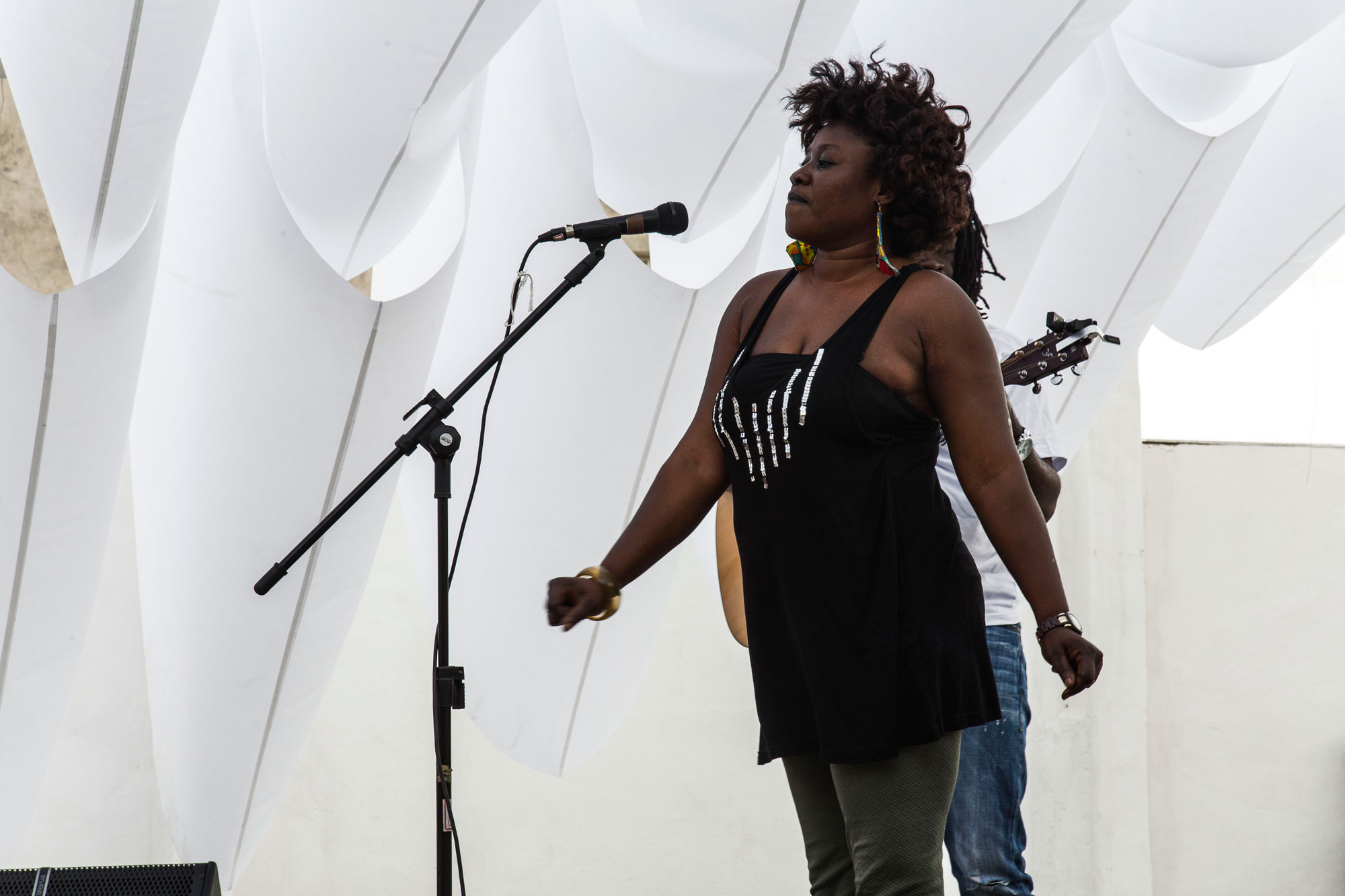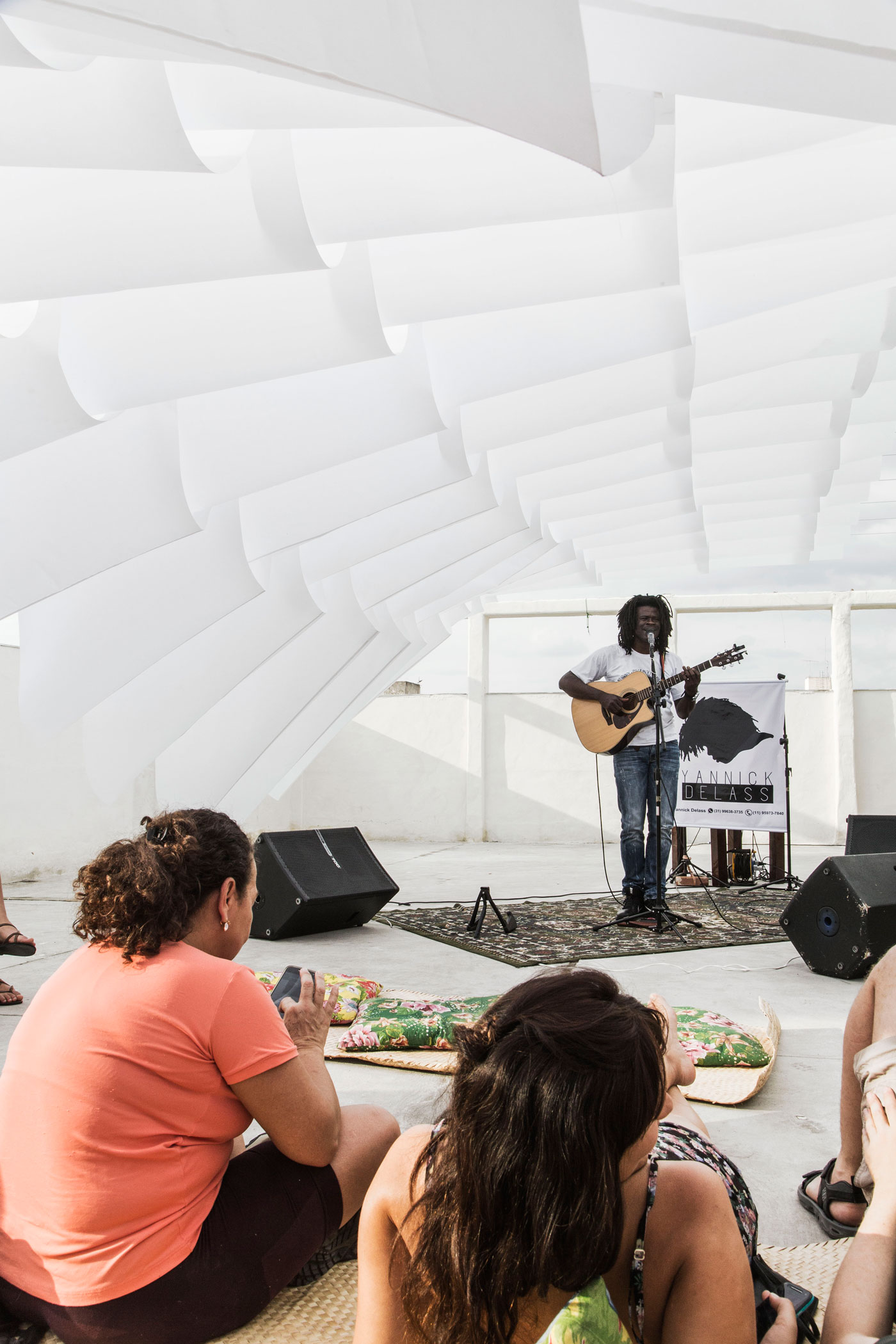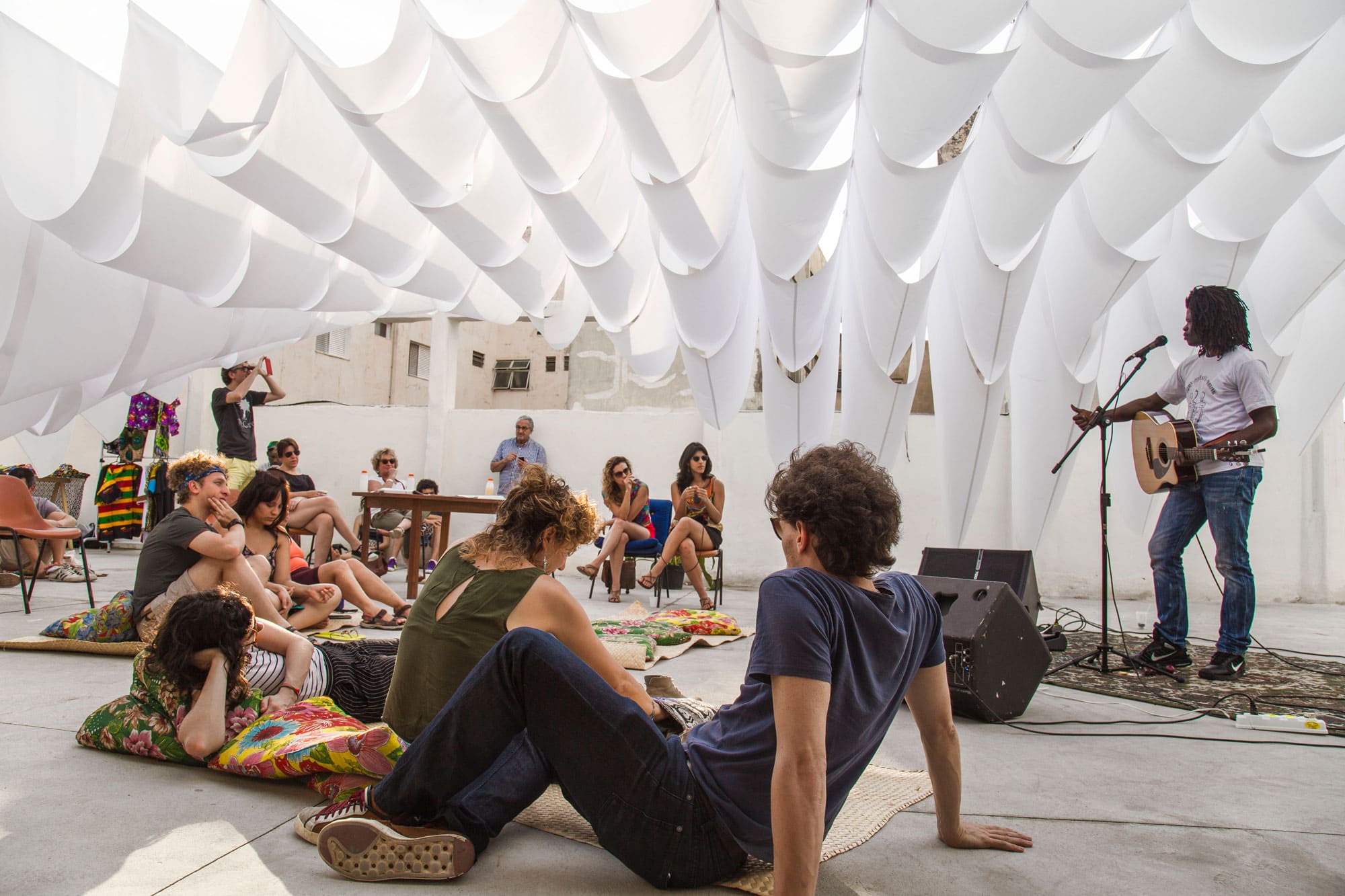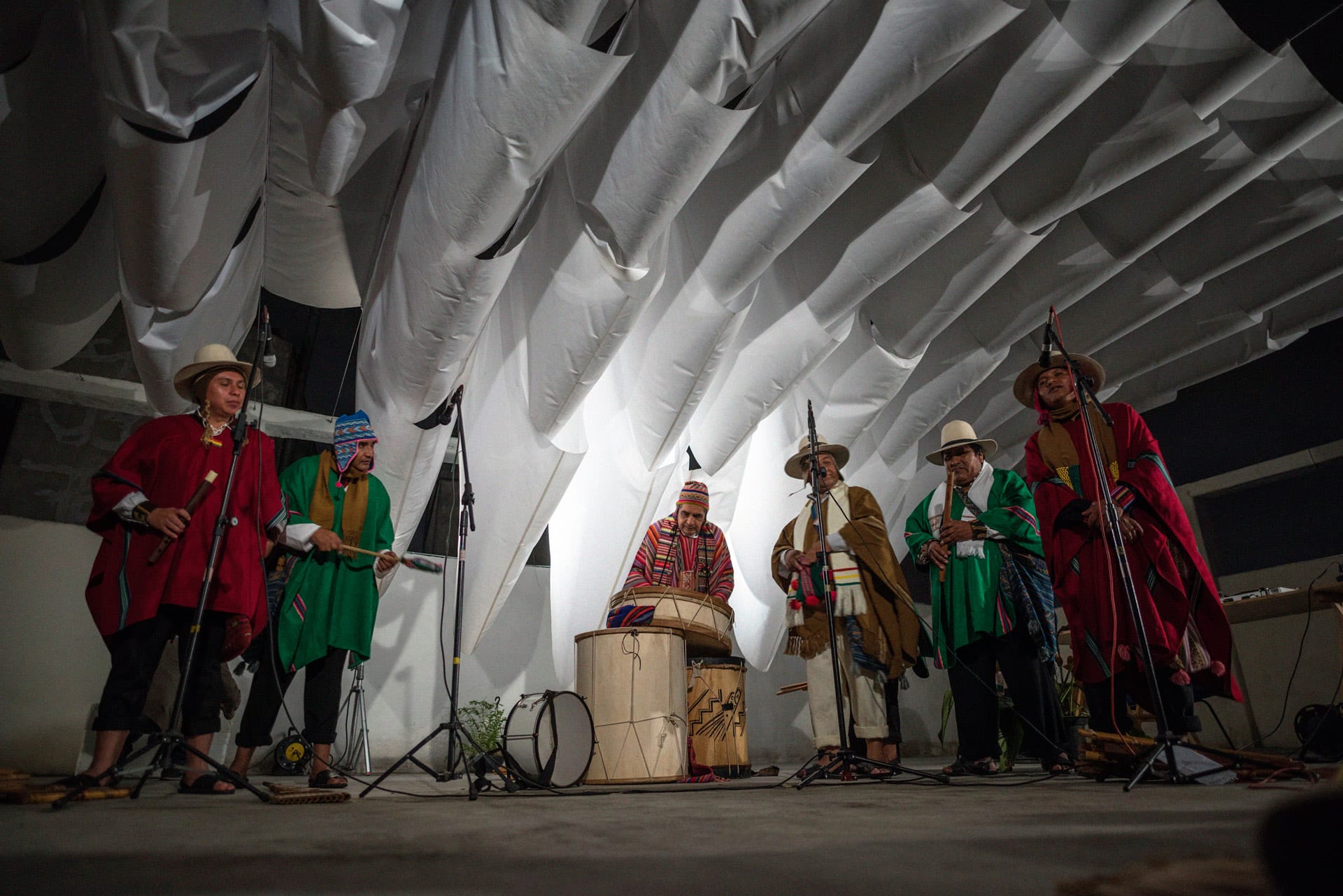The branch of the project that deals with spacialization is found in the construction of a refuge designed by Jakub Szczesny and installed on the terrace of the Casa do Povo–an institution created, not by chance, by Jewish immigrants and refugees, the majority of whom were Polish and progressives. Engaged in Polish political life in the early twentieth century, these immigrants came to Brazil in the 1920s, fleeing political repression perpetrated by then-dictator Jozef Piłsudski. It was they who conceived and built the Casa do Povo as a space to bring together organizations, initiatives and activities that already existed in the Bom Retiro neighborhood. And now, more than 60 years later, an artist/architect hailing from the same land as the majority of these immigrants resumes the Casa do Povo’s original characteristics, transforming its terrace into a “temporary utopia.”Shelter, house, tent, hiding-place, puxadinho, retreat, succah, nest: the Polish Refuge is a space in which Szczesny himself decided to live for one month, maintaining this provisional abode open to all, receiving people who pass through, thus inverting the precepts of public and private.
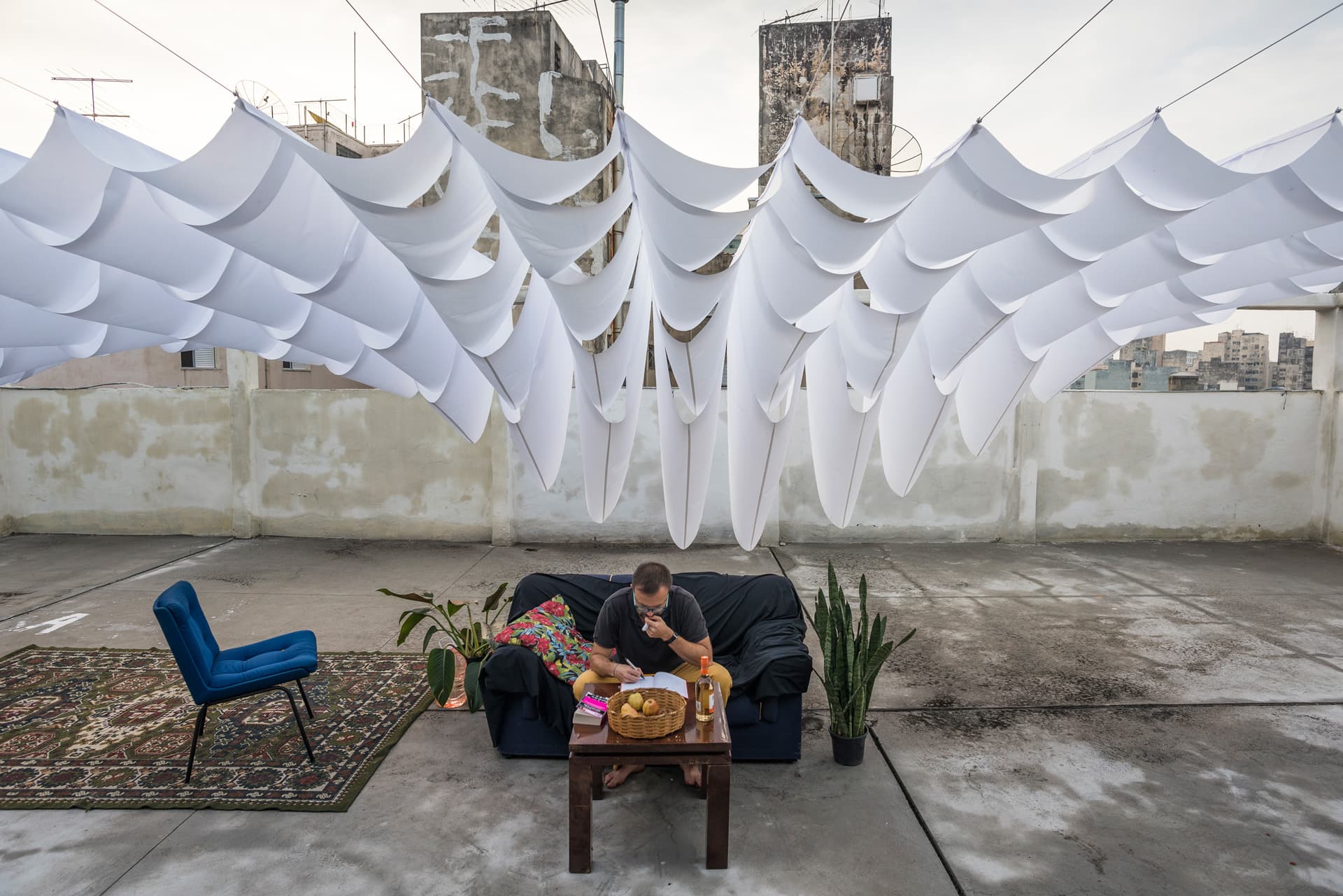
Author:
Jakub Szczęsny
Location:
Casa do Povo,
Sao Paulo,
Brazil
Time:
15.10-09.11.2016
Collaboration:
Gabriela Chuecos
Fabrication:
Rubens Azavedo,
Estudio Sao Joao
Curator:
Benjamin Seroussi
Production:
Marta Wójcicka,
Agnieszka Sural
Ana Druve, Chico Davina,
Mariana Lorenzi (Casa do Povo),
Promotion:
Pool comunicaçao
Sponsor / partner:
Adam Mickiewicz Institute,
culture.pl
Jakub’s interest in minimalist housing design, taking into account several limitations, came prior to this project and extrapolated purely formal or technical questions in Keret House, which bears in its name a tribute to the Israeli writer of Polish origin, Edgar Keret, remains active today, infunctioning as a dwelling place as well as a way of inhabiting time in the fissures opened by the wounds of history. In the Polish Refuge, the challenge is also to not be limited to a merely formal or technical issue. The fact that the artist/architect has chosen to construct his residence in the most inhospitable space of the institution- an enormous terrace out of use for over 30 years–led him to confront two fundamental characteristics of the site. On one hand, it is the only space at the Casa do Povo that provides a certain amplitude, which allows for experience, but is thus subject to weather and therefore linked with the idea of the temporary. On the other, the terrace is distant from the institution’s entrance and it is difficult to access, making it, therefore, an intimate space, perfect for not being discovered, a real refuge. Thus the installation is at once exposed and preserved; it is a place and a non-place. At the house, making use of used furniture panned from the neighborhood’s bazaars- objects already charged with memory–Jakub can reconstruct what he understands to mean home, without forgetting that his stay is short, ephemeral. The cloths and fabrics ar the vedos[1] of this house can be easily disassembled, packed in a suitcase, soon to be re-mounted in another place, thus recreating the refuge.
